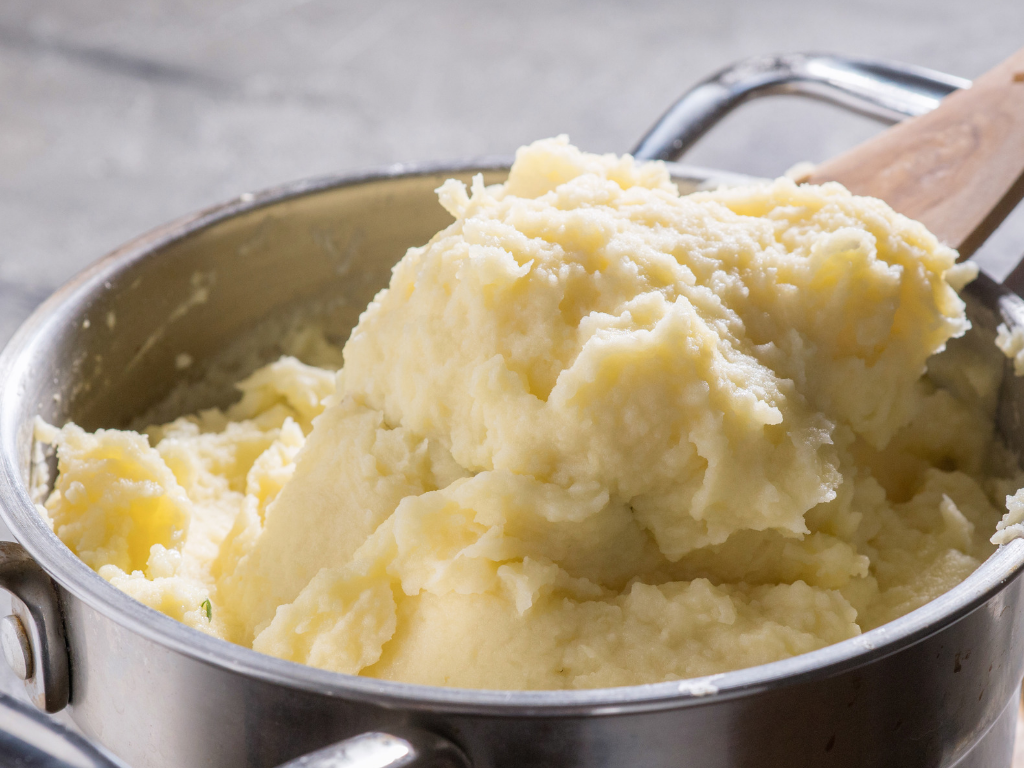
Now, you may be wondering why you need to read about how to mash potatoes. And perhaps you're doing it right. But you'd be surprised by how many folks are missing a few key points and serve up so-so spuds. Of course, there's always gravy—but wouldn't it be nice to serve delectable, stand-alone mashed potatoes? Sure it would! And here's how...
Choose the right potato
Higher starch potatoes like Russets and Yukon Gold, make for the best bodied mash. If you must use red or white potatoes, you're better off going for a more rustic and chunky textured dish. Reds and whites are considered "waxy potatoes" and it takes a lot of processing to get them smooth, leaving you with an unpleasant pasty side.
Go in cold
Cover your chopped raw potatoes with cold water and then bring them to a boil. This helps to ensure the potatoes cook evenly.
Salt the water
Don't skip this step. Leave yourself a sticky note on the oven range so you don't forget! The potatoes will absorb the salt while they cook, meaning you won't have to salt them so much later. Usually 2-3 teaspoons for every 5 pounds of potatoes will do it.
Drain & dry
Drain cooked potatoes thoroughly and then put them back in the pot to gently reheat, allowing excess liquid to evaporate. Make sure to reserve your potato water if you're going to make gravy.
Warmed butter & cream
Now, you don't have to do this, but it's awfully nice. In a small saucepan heat butter and cream (or full fat milk) over low heat, just until the butter is melted. If you'd rather skip the heating step, be sure to use room temperature butter. Cold butter and milk/cream cool down your potatoes.
A moderate mash
One of the most common mistakes people make is to over process cooked potatoes. The cooked starch is delicate and if you go to town and overwhip, you can wind up with gluey, pasty mashed potatoes. A ricer, or food mill guarantees smooth potatoes, but a mindful bit of work with a potato masher is just fine. You want to avoid using a food processor or immersion blender. And really, a few lumps can be nice!
So there you go. Perhaps, you've been making them perfectly all along―hooray! Maybe not. Hooray! Now you can.
